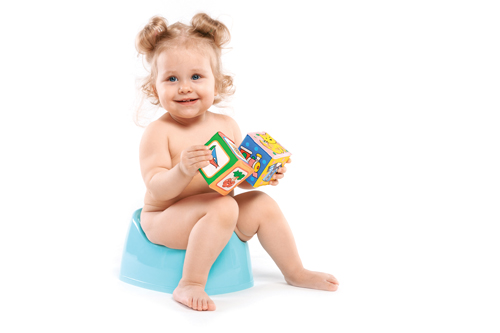Introducing a new baby into the family can be an exciting yet nerve-wracking time for parents. In this article, experts at UK-leading baby brand, Nuby, have looked at some of the best ways to prepare your little one for the impending arrival and help them to stay feeling loved and included.
Explain what’s going to happen
This can simply be dependent on how old your first child is. If they’re under the age of two, they may not be that interested and take the new addition to the family in their stride. However, a slightly older child might be bursting with questions or struggle emotionally with the transition.
To alleviate some of this, it helps during this time to help them know what to expect – that the new baby is going to be with mummy or daddy most of the time, and the baby is either going to be sleeping, crying, or feeding. This will also help manage their expectations – that their new sibling won’t be able to sit up by themselves, let alone be a playmate from the moment they enter the home.
The more prepared your eldest feels at this point, the easier it will be for them to make the transition from an only child into an older sibling.
Tell the story of when they were born
One other tip is to show your eldest some old photographs of your or your partner’s pregnancy before they were born, or of them when they were a baby. Talk to them about what it was like when they were younger and how they too cried and fed all hours of the day.
This will not only give you all a few laughs but also help to ease some of their worries and better understand why the new baby needs more attention for the first few months.
Roleplay looking after the baby
Using a doll is a great way to introduce your firstborn to the idea of having a baby around.
They can use this time to practise how to hold the baby, how to talk to them, and how to be gentle with them. Overall, this helps to normalise the idea that there’s soon going to be a new arrival.
Better still, if you’ve got friends or family with small babies of their own, try to set up meetups or playdates so your child can get used to hearing baby cries and babbling.
Get them involved in the planning
Include your child in the naming process. Ask them what they think of the names you’ve got picked out, for example. Chances are they won’t like your choices and would much prefer you to name their sibling Spider Man or Peppa, but the key thing is to value their opinions.
Take them on shopping trips while you’re gathering up your newborn essentials to make the situation feel more real. They’ll feel even more important if you let them pick an outfit for their younger sibling.
If they’re not good with shopping, let them contribute in other ways, such as putting new items away, helping pack the baby changing bag, or even helping you to redecorate the nursery.
Get them involved in the caring
It’s tempting for any parent to be extra cautious when managing a toddler or young child around a baby. However, allowing your firstborn to have some involvement in looking after the baby is key in making them feel included rather than pushed out.
Singing to the baby, helping bathe them, or passing the wipes or a clean nappy are all easy little tasks that can help the new older sibling feel like they have an important role in the family.
Let them meet their new sibling as soon as possible. A hospital can be a big scary place for your eldest, but the more included they feel at this stage, the more they will continue to do so down the line.
One thing to avoid is punishing your first child or telling them to go away if they make a mistake. Just be patient, calmly explain what they should do instead, and let them have another go.
Make them the focus
Family and friends will be enamoured with the new baby, but it can make your eldest feel much more secure and loved if you heap attention on them as well. Being full of praise, especially when they’re around the baby, will really help boost their confidence and self-esteem.
A ‘gift’ from the new baby to their older sibling is also a wonderful way to instil good feelings from the get-go. It also shows how much the newborn loves their older sibling already and can’t wait to meet them.
The stress of the change can cause older siblings to act out or behave badly in order to get attention from you. They may also start to regress and act younger than their age, for example, when it comes to feeding or changing. As they get used to being around a newborn, being patient and praising them for their good behaviour might help reduce this.
When introducing a second child, one of parents’ biggest fears is that their eldest child will feel left out. At some point, they may also feel guilty for not spending as much time with their firstborn. Unfortunately, this is almost certainly going to happen but you shouldn’t feel guilty about it. Focus on the quality of time you spend with your eldest rather than the quantity.
This is a huge change for the whole family, and it’s going to take some time for everyone to get used to the new dynamics. Being patient and following the tips above can help your firstborn feel more involved before and after the little one arrives.





 Kids love being involved with grown-up tasks, so one of the best ways to encourage a healthy relationship with food is by asking them to help out in the kitchen. Allowing them to handle the ingredients at each stage of cooking a meal helps them become more familiar with the food they’re eating, and is a great way to reduce feelings of anxiety at mealtimes.
Kids love being involved with grown-up tasks, so one of the best ways to encourage a healthy relationship with food is by asking them to help out in the kitchen. Allowing them to handle the ingredients at each stage of cooking a meal helps them become more familiar with the food they’re eating, and is a great way to reduce feelings of anxiety at mealtimes. If you’ve got the outdoor space, why not grow your own fruits and vegetables? Not only is this a fun way to teach your family about where their food comes from, but your little ones are also more likely to eat the food if they’ve grown it themselves. By the time a new ingredient is ready to plate up, your child will already be familiar with the shape and smell – all that will remain is to taste it!
If you’ve got the outdoor space, why not grow your own fruits and vegetables? Not only is this a fun way to teach your family about where their food comes from, but your little ones are also more likely to eat the food if they’ve grown it themselves. By the time a new ingredient is ready to plate up, your child will already be familiar with the shape and smell – all that will remain is to taste it! Turning mealtimes into a game is another great way to encourage your children to have a healthy relationship with food. Consider creating a rewards chart and give everyone a star for each fruit or vegetable they eat. Why not add an extra element of competition by offering a prize to whoever has the most stars by the end of
Turning mealtimes into a game is another great way to encourage your children to have a healthy relationship with food. Consider creating a rewards chart and give everyone a star for each fruit or vegetable they eat. Why not add an extra element of competition by offering a prize to whoever has the most stars by the end of Sometimes, all it takes it a little creativity to get your little ones to eat their meals, so it’s worth taking some extra time to present their dishes nicely. For example, experimenting with colour and choosing a vibrant array of vegetables served on matching tableware is a great way to make your dishes look more appetising. Add an extra touch of artistic flair by making fun faces out of the ingredients.
Sometimes, all it takes it a little creativity to get your little ones to eat their meals, so it’s worth taking some extra time to present their dishes nicely. For example, experimenting with colour and choosing a vibrant array of vegetables served on matching tableware is a great way to make your dishes look more appetising. Add an extra touch of artistic flair by making fun faces out of the ingredients. In some cases, it’s the taste and texture of vegetables that can put your little ones off eating them. So, one of the easiest ways to get your children to eat their vegetables is when they don’t know they’re there at all! This is a great way to up your family’s vitamin intake, especially if the children haven’t been swayed by your previous tactics.
In some cases, it’s the taste and texture of vegetables that can put your little ones off eating them. So, one of the easiest ways to get your children to eat their vegetables is when they don’t know they’re there at all! This is a great way to up your family’s vitamin intake, especially if the children haven’t been swayed by your previous tactics.









